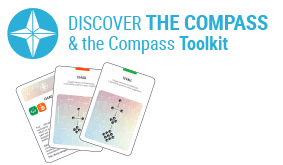https://blog.itcilo.org/wp-content/uploads/2011/11/share.jpg
900
1600
wambeke
https://blog.itcilo.org/wp-content/uploads/2017/06/itc-ilo-blog-logo-small.png
wambeke2011-11-02 16:39:172017-10-31 21:47:13Share, Learn and Innovate
https://blog.itcilo.org/wp-content/uploads/2011/09/social-media.jpg
400
792
wambeke
https://blog.itcilo.org/wp-content/uploads/2017/06/itc-ilo-blog-logo-small.png
wambeke2011-09-23 16:28:312017-10-31 21:51:26Social media revolution
https://blog.itcilo.org/wp-content/uploads/2011/08/mobile-learning.jpg
810
1600
wambeke
https://blog.itcilo.org/wp-content/uploads/2017/06/itc-ilo-blog-logo-small.png
wambeke2011-08-02 13:00:072017-10-31 21:53:06Mobile learning toolkit launched
https://blog.itcilo.org/wp-content/uploads/2011/08/thinking-impact.png
600
1000
wambeke
https://blog.itcilo.org/wp-content/uploads/2017/06/itc-ilo-blog-logo-small.png
wambeke2011-08-01 12:09:262017-10-31 22:08:33Is your thinking pragmatic and systematic?
https://blog.itcilo.org/wp-content/uploads/2011/05/game-storming.jpg
313
640
wambeke
https://blog.itcilo.org/wp-content/uploads/2017/06/itc-ilo-blog-logo-small.png
wambeke2011-05-12 16:26:352017-11-01 10:04:41Gamestorming. Do you want to be more innovative?
https://blog.itcilo.org/wp-content/uploads/2017/06/Microlearning-1.jpeg
953
1920
wambeke
https://blog.itcilo.org/wp-content/uploads/2017/06/itc-ilo-blog-logo-small.png
wambeke2011-04-02 15:31:442017-11-01 10:05:13Mobile learning (2)
https://blog.itcilo.org/wp-content/uploads/2012/04/scenario-1.jpg
683
1024
wambeke
https://blog.itcilo.org/wp-content/uploads/2017/06/itc-ilo-blog-logo-small.png
wambeke2011-03-11 16:57:482017-11-01 10:05:46Towards a new organization ?
https://blog.itcilo.org/wp-content/uploads/2010/12/augmeneted-reality.png
600
1000
wambeke
https://blog.itcilo.org/wp-content/uploads/2017/06/itc-ilo-blog-logo-small.png
wambeke2010-12-03 22:54:082017-11-01 10:13:12augmented reality and data visualization
https://blog.itcilo.org/wp-content/uploads/2011/08/thinking-impact.png
600
1000
wambeke
https://blog.itcilo.org/wp-content/uploads/2017/06/itc-ilo-blog-logo-small.png
wambeke2010-11-19 12:57:342017-11-01 10:35:03Where good ideas come from.
https://blog.itcilo.org/wp-content/uploads/2010/11/toolkit.jpg
1066
1600
wambeke
https://blog.itcilo.org/wp-content/uploads/2017/06/itc-ilo-blog-logo-small.png
wambeke2010-11-17 15:17:212017-11-01 10:39:22Building toolkits about learning, training and knowledge sharing.
Scroll to top








